You've written, edited and published your book. So how do you market it? Today, the Alliance of Independent Authors AskALLi team is looking at the fifth process of publishing: book marketing.
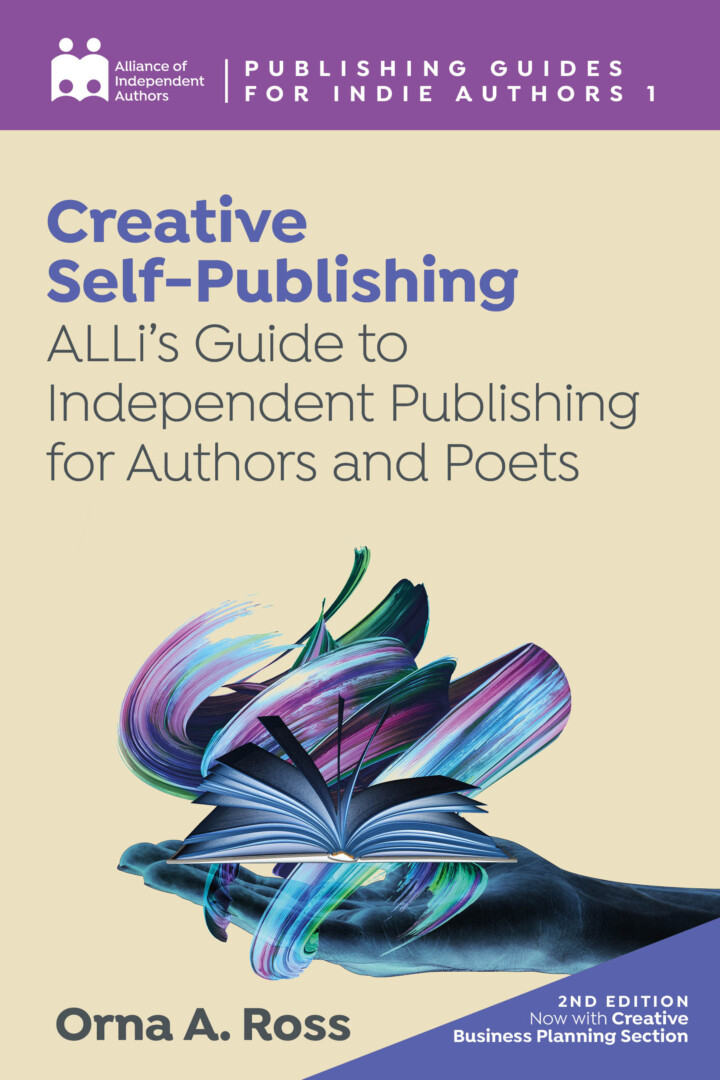 The below is adapted from our ALLi guide Creative Self-Publishing. This book is available for purchase in multiple formats in our bookstore. Members enjoy free access to the ebook.
The below is adapted from our ALLi guide Creative Self-Publishing. This book is available for purchase in multiple formats in our bookstore. Members enjoy free access to the ebook.
An overview of the seven processes can be found in this post. The rest of the processes can be found here:
What is the Difference Between Marketing and Promotion?
Book marketing and promotion are often confused, or spoken of together, but they are not the same thing. Marketing is letting the right readers know that you exist, as a writer, that your books exist, and what sort of books they are. Promotion is a focused sales push.
Marketing centers on what the book publishing business calls “discoverability” or “findability”—ensuring that you and your books can be found by the right readers and that the promise you’re making to them is clear. It embraces your author platform, your covers, your descriptions, your review requests, your email lists, your reader funnels, and physical assets like bookmarks and postcards.
You might refresh your marketing look and feel, periodically, and you’re always tweaking here and there, but essentially the marketing keeps on rolling along, taking in each new reader and each new book. The process is similar for most authors and the aim is to standardize and automate your marketing processes as much as possible, delegating certain tasks to technology, tools, and assistants.
Book promotion, by contrast, kicks in around a particular book and a particular point in time. It’s a push that has a start and an end date and there are countless kinds of promotions, including book launches, virtual or real-life book tours, advertising and other purchased promotions, and book-specific activities. Promotions are non-standard. They vary widely from author to author, book to book, genre to genre. Book promotions are limited only by your imagination, time, and money.
Marketing is passive selling and promotion is active selling.
The Right Reader
Marketing is your promise to your reader. It answers the reader’s implicit question whenever they meet a new writer or book: would I like this? Is it for me? If your marketing is properly set up, they’ll quickly be able to answer that question. And you’ll easily be able to know if somebody is the right reader for one of your books.
Orna's son is currently reading through one of those “100 books to read before you die” lists and was excited to read The Girl with the Dragon Tattoo, as so many of his friends had loved the book. As he read it, he was completely baffled as to how this book which so many other people loved–it has sold over seven million copies–had left him utterly underwhelmed. “You just weren’t the right reader,” Orna told him.

‘Not everyone is going to like your book'. Photo by Clay Banks on Unsplash
Newsflash: not everyone is going to like your book. No matter how well you’ve done your job as a writer, readers will enjoy it to varying degrees. Some will be indifferent, and some will actively dislike it. And that’s okay.
If we ask a successful indie author who their book is for, they are able to describe them with laser-like precision in terms of age, gender, demographic, values, and touchpoints. If we ask a new author, the most common answer is “pretty much everyone.” Or: “It’s not for any particular demographic.” Or: “I don’t know, I didn’t write it with a reader in mind.”
If you’ve fallen into this camp up to now, that’s ok, but it’s time to start thinking about your genre, niche, and micro-niche if you want to attract readers. While it might seem like a nice idea to appeal to as many people as possible, going broad and marketing to everyone doesn’t mean more sales. The opposite is true. Going narrow and niche is where you score.
The “right reader principle” is this: aim your book obviously and exclusively at fans of your micro-niche. Market in a way that attracts those who are most likely to be most attracted and forget everyone else. If you do this, other readers do actually find their way to you, drawn in by clear messaging and attractive, focused branding. Ironically, when you aim your marketing more widely in the hopes of attracting “pretty much everyone”, what happens in practice is that the reader doesn’t know what kind of book it is, so they take a pass, even those who would have loved it.
When the right reader principle is adopted, it permeates all you do: your social media, book descriptions and covers, front and end matter. It helps you point ads at the right ad-sets, attract readers into your email and newsletter lists, choose images for your website. And it helps you choose the right category and keywords for your books.
By getting to know your books from the reader’s perspective, you can tease out your book’s potential points of difference, uniqueness, and value for the reader. Once you crack this and find your niche and micro-niche, you’ve found your fanbase, and their long-lasting loyalty becomes the core of your author business.
Enshrine that core principle of engaging the right readers, and only the right readers, in everything you do as an author and publisher and creative business owner.
Who is Your Ideal Reader?
How do you find the right readers? Well, you need to start by working out who they are. Asking questions about who your readers are will help you get a picture of your “right reader”. Demographics are a great place to start, but you want to try and find out who they are as a person and as a reader. So what are their inner attributes, their beliefs and goals, their political leanings or fears and worries. Ask yourself how they like to read, what devices or formats they use and where do they get their recommendations from?
The answers to these questions need to be more than guesswork. Take time to consider them, then see if you can find evidence that backs or contradicts your hunches.
If you currently have an email list, even if it’s small, poll your readers and ask them to complete a survey to better understand what they need and want from you. Ask questions: in your emails, in comments on your own blog, or in the comments of other’s. Join a forum, book club or Goodreads group that discusses your topic or genre. Learn from comparable authors.
Your relationship with the right readers is an ongoing refinement and should deepen over time.
For more on discovering the right reader, you can read over Ultimate Guide to Finding the Right Readers for your Book.
Creative Book Marketing
Once you know who your right reader is, then you can begin to market to them. The creative approach to marketing is to see this less as a commercial task and more in terms of deepening that relationship. Your book marketing becomes another channel for your personal passion and mission, as personal and individual, and important to you as your writing.
So many indie authors say, “I love writing but I hate marketing.” But in these digital days marketing is writing. How you attract a reader’s attention is through good words, good images, and good storytelling in your book descriptions, your advertising blurbs, your social media, and wherever your book is found online.
This is where your creativity comes in. Every day, we see indie authors who take the very uncreative approach of going out on social media full of, “buy my book, buy it now, please buy my book, please promote me, please follow me, please like me, please review”.
It’s understandable. By the time you get to the marketing phase, you’ve spent months, maybe even years, on your book. You’ve worked harder than you knew you could and now you’ve got a book to sell. It’s so exciting! Except nobody else is all that excited.
A decade ago, publishing a book was a big deal. Not so much anymore. As the bar for publication has fallen, the number of people publishing has risen and these days, using artificial intelligence, even machines can produce passable books.
To most readers, you’re just another person they don’t know, who’s trying to sell them something.
Reader attention is earned these days. First you must understand your books’ value, then you must communicate that value in creative and exciting ways, to those who are most likely to be interested.

Photo by Thought Catalog on Unsplash
Book marketing is best when it is personal and there are many ways to do it well. You don’t have to do anything that doesn’t appeal to you, but you do have to do something. Books, even great books, don’t sell themselves.
Approaches to book marketing can be divided into three categories.
- ACCESS Marketing and Promotion is a step-by-step approach to developing a relationship with the right readers. Run through your own author website.
- Algorithm Marketing and Promotion. Using advertising and other methods to harness the power of algorithms to give your book exposure and sales. Run through online retailer platforms.
- Influencer Marketing and Promotion. Working with other literary and media influencers e.g. agents, authors, booksellers, critics, journalists, librarians, publishers, reviewers, social media accounts. Run through the influencer’s website or platform. If you'd like to understand more about influencer marketing, we've written an Ultimate Guide to Influencer Marketing here.
ACCESS Marketing
ACCESS marketing is a way of creating and mindfully nurturing your relationships with the right readers, so that you lead them through the reader journey you want them to take and encourage them to move from being readers to fans, and maybe even superfans.
It also revolves around content. You attract interest with media and social media content. You hold interest with content on your website. You attract more interest with a reader magnet which you offer in exchange for access to readers’ direct contact details, and their permission to contact them.
ACCESS stands for:
- Attract – find readers through social media and advertising activity online—blog, podcast, video, ads—that use carefully chosen words and images designed to hook the right readers. Craft this content to be unique and exceptional, offering real value that aligns with the value offered in your books.
- Captivate – release captivating content on a schedule that suits your writing process, keeps existing followers interested, and attracts newcomers.
- Connect – offer a channel by which followers can connect with you and perhaps also with each other e.g. email, Facebook group.
- Engage – make this channel meaningful by starting and nurturing valuable conversations that are aligned with the values that attracted these readers to your channel, and with the values you offer in your books.
- Subscribe – invite these and other potential followers to sign up to receive some free content (often called a “reader magnet”) in exchange for regular communications from you. Make it clear what they will receive from you.
- Satisfy – Value your readers’ contact details. Contact them as promised and when you do, offer even more value. Aim to make your communications exciting and delightful. Immerse your subscribers in the world of your books.
Once these ACCESS marketing steps are completed well, selling books or other products or services to this group is no great effort. If you’ve done the job well, readers are asking, “when is the next book out?” and, “what else can I buy from you?”
Sometimes, from discovery to purchase is the act of a moment. They see your book on your website or in-store, like the cover and description, and—click!—they buy. More often, it takes time. They see you on social media and “like” what you’re saying for weeks, months, or even years before they wander across to your website and have a browse. They get distracted and wander off, but there you are, popping up on social media again, saying or showing something else they like. They are attracted again—this time signing up for your reader magnet.
You send them your newsletter each month and then, one day, when invited, they finally get around to buying a book.
ACCESS marketing sounds like it’s very time-consuming but with automation tools and regular output of content, you’re set up in such a way that all of this can be easily fitted into the challenges of writing and producing books.
Nurtured mindfully, this access to your readers can be the basis of a lifelong relationship that is hugely fulfilling for both you and your readers. You can offer your subscribers other premium products and services, as well as books. Some of them will become superfans, who spread the word about your books, review your books on publication day, and influence others to buy.

Photo by Alexandra Fuller on Unsplash
Influencer Marketing
Some authors formalize this influence into reader teams like an ARC (Advance Review Copy) Team, a group of readers who receive a copy of your book in advance of launch and leave a review, or a street team, a subsection of your ARC readers who not only post a review but are gung-ho about your book to everyone who’ll listen.
These readers are ready with their reviews on launch day, turn up to your book party, post updates on their social media sites, and help you to push sales any way they can. These true superfans are very precious to an author.
In addition to readers, many other people can act as influencers on your behalf: booksellers, critics, librarians, literary event organizers, social media mavens. What’s important here is to recognize what gives a writer influence: ideas, skills, and relationships. Of the three, the most important is relationships. Your author platform is, essentially, about other people.
One other group of influencers warrants particular mention: other authors, those whose book are comparable to yours and with whom you share a readership.
Read more in our Ultimate Guide to Influencer Marketing.
Comp Authors
Comparable authors and books, or “comps” for short, aren’t necessarily those you choose to read yourself. They will likely be in your genre and category, but your point of comparison might be style of writing (e.g. literary, didactic, lyrical, fast-paced), setting (e.g. Irish fiction) or theme.
Any notable aspect of your writing can provide a point of comparison between you and other authors, between your books and other books.
To find your comp authors and titles, you need to set aside the view that your book is completely unique, and your voice is nothing like anyone else’s. You may already know some writers who are comparable, or you may not have a clue. It doesn’t matter. You can easily find them. The important thing is being willing to do the work on this, to drill down into what makes your books appealing to readers.
The information you glean about comp authors will inform and improve your decisions about every aspect of marketing—cover design, titles, subtitles, pricing, back cover copy, blurbs, and testimonials. And, most of all, advertising, as you can use comp author names as keywords in your ad targeting.
Finding and leveraging comparable authors has long been at the center of thriller writer Mark Dawson’s strategy, and he has built not just a seven-figure publishing business but an education platform on the concept.
“My books are often compared in their genre to Lee Child, so one of the things that I do on Facebook is to serve ads just to people who know or like Lee Child—fans of Lee Child’s fan page, fans of the Jack Reacher fan page, and so on.”
In a similar way, find an author in your genre whose books are comparable to yours. This is not just about ads. Knowing your comp authors is key to all aspects of marketing and promotion. They have the readership that you want. They can tell you what those readers like and enjoy, what stories they want to hear, what words and images work well when attracting them.
You find your comp authors by asking yourself questions: Who are the best known/most successful authors in my genre, niche or micro-niche? In what ways am I like these authors? In what ways are my books like theirs?

Miriam Verbeek
ALLi Case Study: Miriam Verbeek on Persistence
Miriam Verbeek is a versatile writer with an academic background who writes contemporary fantasy and crime novels, and loves animals. Find out more on her website.
I should, perhaps, be astonished that I still categorise myself as ‘beginner’ on this journey of self-publishing since I published my first book in 2017, have now published four books, am well on the way to publishing a fifth, have great reviews for my books (though not many) and win awards for my writing. Still now, I receive less than $10 (on a good month) in earnings from my books.
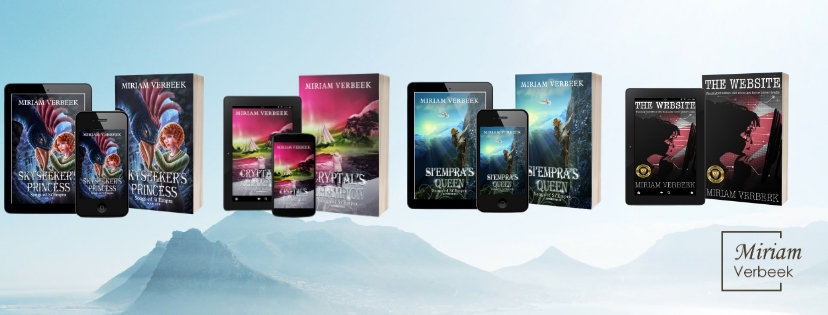
Miriam's Books
I was totally green when I published my first book – simply followed the instructions on Amazon and Ingram Spark on how to publish, got a cover designer recommended to me without vetting what he was good at, similarly with working on the internals. I have been a reader – an avid reader – all of my life but never taken notice of how books arrived in either e-form or physical form onto the shelf of my attention. Naturally, when my first book arrived on the market, there were virtually no sales. I pushed on publishing the second book (in the same series) and then had a light-bulb moment (duh!) that maybe I was doing something akin to putting my book in the library then locking the library door so no one ever got to see it. That is, I cottoned onto the idea that I had to work on visibility.
At this point, I attended a workshop put on by our national Australian Society of Authors where the presenter talked about marketing. By the end of the workshop, I had learned terms like bidding, newsletters/subscribers, aggregators, retailers and so on. The author sitting next me put into words my rising panic, “This is terrifying!” “Okay!” I thought. “Got to get serious!”
I discovered ALLi and then Mark Dawson’s SPF and worked away at stepping into a very foreign world to me… and I continued to fall into one trap after another, spending huge amounts of money each time. I began to joke that I work (my day job is academic editor) to sustain my very expensive hobby.
My major problem is that I do not have a brain that will focus me on the task of increasing book visibility at the very necessary consistency levels. I start with the best intentions, following steps provided by SPF and other guides but I let life get in the way and the consistency is not there. I send out a newsletter to my 500+ subscribers each month and I love doing that – I get at 20-25% open rate and regularly ask whether subscribers want to unsubscribe but very few do so I assuming they like what I send.
The biggest financial traps I’ve fallen into were motivated by my seeking to find a way to have others do the leg-work involved in increasing the visibility of my books. The first group I signed up with took my distribution rights in return for increasing visibility and giving me a partial amount of royalties earned. They re-did the covers (needed!) to my series, for which I paid. After three or four months, they ran one Amazon advertisement (which I had to sign-off on – as if I knew what was a good advertisement or not!) for which I paid.
After six months, my sales had dropped from a couple of dollars before the arrangement to zero. I took back my distribution rights. The next group I signed up with offered to mentor me through the process – regular tutorials with a group as well as one-on-one sessions. The regular tutorials were held at 4 am my time (it’s a US group) and I retained little of the lessons because of the awful time, though many issues discussed were ones already covered in SPF.
The one-on-one sessions were disheartening. They started well but even by the second one, I suspected my “mentor” had forgotten our previous conversation and the he’d set me to do. He clearly indicated he had zero interest in actually even taking a glance at the types of books I wrote. By the third call, he repeated himself, seeming more concerned to ensure that his wife got her morning coffee and the baby was well looked after than attending to the task.
You get the picture.
It’s an interesting journey I’ve been on. Since I don’t write true to genre, I’ve learnt that trite formulas for blurbs, covers and the like are not for me. I now am more discerning about who I get to help me but I think I am still a looooong way from stepping from being a ‘beginner’ to being an ‘emerging’.

J.R. Thorn also known as A.J. Flowers
ALLi Case Study: JR Thorn on the Importance of Audience
JR Thorn writes steamy “why choose” romance. You can find out more about JR on her website and Facebook.
Operating under multiple genres has given me an excellent overview of what the marketing atmosphere is right now; because I definitely know how to sell books. But, there is a difference between selling books through an established brand, versus something completely new. Every genre has its own challenges and quirks.
Is marketing tough right now? Yes. Always. Everyday is a learning experience and navigating a new marketing environment that didn’t exist yesterday.
There are key things I’ve learned over the years to sell books, or anything in general. For example, know my audience. Know what they want. Know what they are looking for and what will catch their eye.
How did I learn what my audience wanted? Well, I looked at what already sold and found the common ground. I didn't reinvent the wheel. I did what they do, and then made it my own once I understood the “rules.”
My author friends have named me the “blurb queen.” I can only assume this is because they see the years of experience and effort I’ve put into understanding my target audience. I developed my “tagline” skills through flash fiction, twitter pitch contests, and query letters.
Eventually, I decided to indie-publish because that’s where I earn the most. Why share so much of the pie when I can do it myself? Not everyone is cut out for that, but I already picked up the rug and looked at the dark underbelly of marketing, so now that I know the good, bad, and ugly, it’s time to step forward and do what I do best.
Sell books.
My passion is probably daydreaming more than any other part of the process. I love a story that talks to me and it can often result in an abstract concept that I need to bring down to earth.
It’s taken me a long time to learn how to convey my passion on the page in a way that will speak to my audience.
The best tools that have helped me to learn how to sell books are:
- Read. Read read read. And I don’t mean just read everything, I mean read books that do what I’m trying to do. I had to read at least 50+ books in my chosen niche that were ranked 10k or better on Amazon, and indie-published, to learn the small nuances and tropes of what my audience expected of me before my ads became effective.
- Present myself accordingly. This means branding, covers, blurbs, social media posts, and writing style. Each genre has unique expectations and when I understand the “rules,” then I can deviate from them.
- Build a brand, which sounds like my second point but it’s the next step. Once I established a brand (learned the rules) then I was able to expand. I can step outside of the train tracks and be more “myself.” This has resulted in some of my bestselling books and that really surprised me, but it was because readers were already waiting in the wings for something new from me. And when something I was really passionate about was published, they felt that passion. I always put my all into every book and I never write anything for the sake of tropes. I make sure I find an overlap between what I enjoy and what sells, but as I grew my brand I was then able to expand those “rules” into something that better fit my personality. It resulted in a happy author (me) and a big payday that allowed me to keep doing what I’m doing as a career. Being an author is expensive.
I was an automotive engineer for a big OEM and leaving my engineering job was one of the hardest decisions of my life. But because I learned how to market my books, I was able to do it. It wasn’t overnight. I’m a six-year overnight success, as I like to say.

John A. Hoda
ALLi Case Study: John A. Hoda on his Lessons Learned
John A Hoda is a licensed private investigator and crime fiction author. You can find out more about him on his website and Facebook.

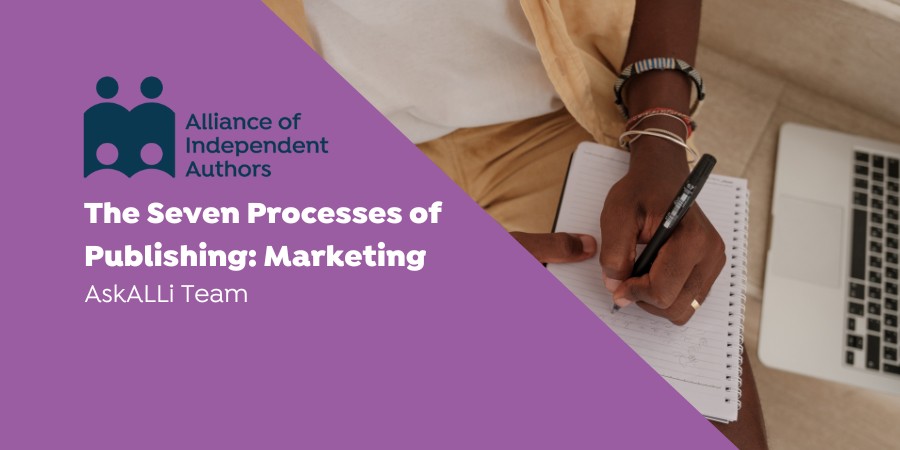

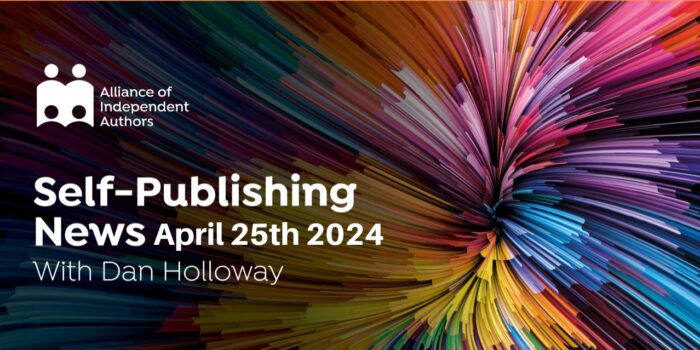
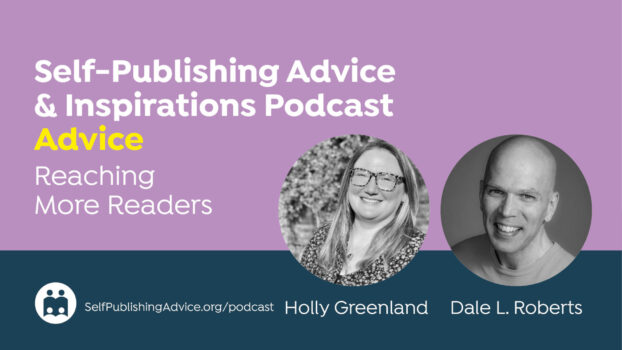

Your replies have helped me understand a lot of things. Best regards